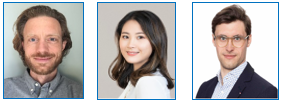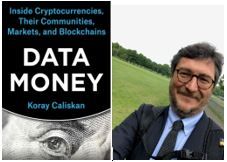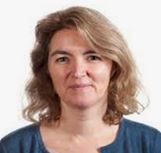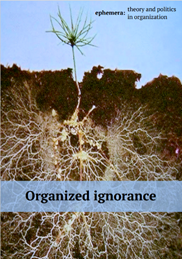WETO Events
2024 Events
The Work, Expertise, Technology, Organization (WETO) group Invites you to a seminar on:
“Alternative modes of organization”
Date November 29, 2024 from.13.00 -16.00
Location Copenhagen Business School, Kilevej 14 A, 2000 Frederiksberg in Room K1.53
Register here before November 26, 2024

Alternative organization scholarship has emerged as a distinct subfield of management and organization studies in recent decades, focused on empirical contexts including social movement organizations, cooperatives, intentional communities, maker spaces, alternative food networks, etc. These forms of organizing seem to diverge from the mainstream in their commitment to unconventional principles and uncommon organizational practices. Rather than a clear definition, however, these clusters of characteristics seem to add up to a ‘you know it when you see it’ test for whether a given organization can be considered ‘alternative’. In this seminar, we try to address questions of what the notion of ‘alternative organization’ might mean, and how the study of alternatives should progress. The seminar includes four talks and subsequent plenum discussion:
- Genevieve Shanahan (Cardiff University): Alternative organizations’ innovations in democracy
- Jacob Hasselbalch (CBS): The landscape of alternative organizing against the plastic crisis
- Birke Otto (CBS): Teaching Alternatives at the Business School - Canon, Cases and Challenges
- Sara Dahlman, Erik Mygind du Plessis, and Emil Husted (CBS): A processual theory of alternatives
The seminar will, furthermore, serve as an occasion for discussing a call for papers in Organization on alternative organization.
WETO seminar: “Professional Jurisdiction in the Digital Age:How Predictive Algorithms Reshape Professional Work”
Date: June 13, 2024 from.14.00 -16.00
Location: Copenhagen Business School, Kilevej 14 A, 2000 Frederiksberg in Room K4.74
Register here before June 7, 2024

We invite you to attend a WETO seminar that examines the evolving role of predictive algorithms in professional work and the implications for professional jurisdictions and control in organizational settings. The seminar will be moderated by Kirstine Zinck Pedersen, Associate Professor at the Department of Organization, Copenhagen Business School.
Presentations:
"Building Jurisdiction on the Commons: Workplace Jurisdiction Creation in the Age of Digital Technologies"
Presenter: Bomi Kim, Assistant Professor, House of Innovation, Stockholm School of Economics
The study provides an ethnographic analysis of how a newly formed medical image processing group creates workplace jurisdiction by interlacing two distinct orientations to data: how analytical technologies by-design allow users to plumb the depths of data versus how professionals interact with data in an instrumental manner to build their inference. Kim's research demonstrates how workplace jurisdictions are created and sustained in digital work settings where data, technologies, and increasingly, knowledge are shared across occupational groups.
"Preventing Futures: Limits of Professional Control in Insurers’ Use of Predictive Algorithms"
Presenters: Alexander Gamerdinger, PhD Fellow, Copenhagen Business School & Prins Marcus Valiant Lantz, Postdoc, Roskilde University
The study examines how data scientists at a disability insurance company utilize predictive algorithms to prevent future injuries through individualized risk assessments. Drawing on an 11-month ethnographic study at a Danish insurance company, the authors show how data professionals delegate parts of their professional judgement to semi-autonomous algorithms in order to maintain control over their professional jurisdiction. The research highlights how predictive technology is redefining professional work and transforming traditional notions of risk and insurance.


WIP seminar: Louise Jørring on Friday April 5 (10:00-12:00; venue: K.4.74).
Topic: Crafting meaningful frontline work in the face of public sector automation. Discussants: Associate Professor Anne Mette Møller, IOA; Associate Professor Kasper Trolle Elmholdt, Department of Politics and Society, AAU. Supervisors: Associate Professor Lise Justesen, IOA; Associate Professor Ursula Plesner, IOA.
Seminar with Edward Nik-Khah on Friday March 15 (11:30-13:00, venue: K.4.74).
Topic: ‘Platforming Economics: Or, the Four Fables of the Tech Economist
Please sign up NLT than March 12 here
Edward is professor of Economics at Roanoke College. Nik-Khah is an historian of economics who has written widely about the Chicago School and, in his more recent work, has inspected the impact of recent development in economics – in particular market design and game theory – on the business models of large technology companies such as Google or Facebook. In 2017, he and Philip Mirowski published The Knowledge We Have Lost in Information: The History of Information in Modern Economics (Oxford University Press), which offers a critical history of how economists became market designer and how this changed how economists understand themselves vis a vis the ability of economic actors.
Edward will discuss a paper titled “Platforming Economics: Or, the Four Fables of the Tech Economist.” The paper will be distributed among those who accept this invitation.
Seminar with Koray Caliskan (The New School, NYC) on Cryptocurrencies and Data Money

Time and date:Friday, February 23, 2024, kl.13.00-14.30
Location: K. 2.53
Registration is needed and you can sign up here NLT Feb.21.
Speaker: Koray Caliskan, The New School, New York City, USA
Short Description: Drawing on his award-winning research, Caliskan will present a radical insider view of how cryptocurrencies are created and traded on the ground, analyzing the emergence of the third fiat money in world history: Data Money
Moderator: José Ossandón, Associate professor, Department of Organization, Copenhagen Business School
Abstract: The talk offers the first detailed ethnographic analysis of the remarkable rise of cryptocurrency economies and communities. Since the invention of Kublai Khan’s paper money eight centuries ago, there has been no equivalent innovation in the world of money—until now, with cryptocurrency. Based on award-winning longitudinal research, this talk unveils the concept of Data Money, a historically novel form of currency. Data Money is created as the right to send data privately over a secure accounting infrastructure called blockchain. Drawing on two years of fieldwork among global cryptocurrency communities, the talk provides a comprehensive analysis of these new financial global actors, complete with original visualizations of their relationships. It looks into stories of both success and failure in these emerging economic realms, revealing the production principles of cryptocurrencies and explaining the four distinct blockchain types that underlie all crypto financial services. By shedding light on how crypto exchanges operate from within, the book also clarifies why and how we have misunderstood, under-regulated, and improperly taxed crypto exchanges and actors. The talk concludes by addressing what comes after Bitcoin and Ethereum, how to prepare for the next Big Bang in cryptocurrencies, and the risks associated with such financial innovations.
Koray Caliskan, is an economic sociologist teaching at The New School, Parsons School of Design. He is the author of "Data Money: Inside Cryptocurrencies, Their Communities, Markets, and Blockchains" (Columbia, 2023). Caliskan’s research on cryptocurrencies was selected as a winner of the Breakthrough of the Year 2021 in Social Sciences and Humanities by the Falling Walls Foundation, Berlin. His new book "Economization: Markets, Economies, and Platforms in Perspective", co-authored with Michel Callon and Donald MacKenzie is coming out in 2025 from Columbia UP. Currently, he is conducting research on online
Context: this activity is part of the seminar series of the Work, Technology, Expertise, and Organization (WETO) and Organizations, Markets and Governance (OMG) research groups at the Department of Organization, CBS. The activity is also part of the project “Post-pandemic Poverty: Debt and the Feminization of Finance in Marginal Sites” founded by the Independent Research Fund Denmark (DFF) and the Danish Institute for International Studies (DIIS).
------------------
The IOA-research group Work, Expertize, Technology and Organization (WETO) invites to the seminar:
“It was something but it was nothing”: Church of England clergy experiences of digitalisation and meaningful work, with professor Gillian Symon,
Royal Holloway, University of London

Time and date
Wednesday, January 31, 2024, kl.12.00-13.30
Location
K. 1.43
(research conducted with Rebecca Whiting, Birkbeck University of London and Rebecca Taylor, Southampton University)
When the Covid-19 pandemic struck, churches were closed and ministry had to be delivered on-line, considerably expanding digital exposure for clergy who had previously made very limited use of technologies. This provided our research team with the opportunity to seek to understand how technology “disrupts the meaning and moral values that tether people to their work and render it meaningful” (Rauch and Ansari, 2022). Over the period of the pandemic crisis (2020-2021), we conducted 40 interviews with clergy from one Church of England Diocese, exploring with them their experiences of online ministry. In this paper, we discuss how meaningful work was both disrupted and enabled in this period, including tensions around materiality, embodiment, community and authenticity. We highlight how the crisis fed into ongoing organizational debates around organization structure, performance and values, and the significance of changes made during the crisis for future meaningful work.
Gillian Symon is Professor of Organization Studies in the School of Business and Management, Royal Holloway. Her research interests are in the areas of digital technologies, work and organization; invisible work; and new forms and spaces of working. Additionally she has a strong interest in research practice and qualitative methods of research inquiry. She has published extensively on these topics including most recently in the journals Work, Employment and Society, Journal of Management Studies, Organization Research Methods, New Technology, Work and Employment, Information Systems Journal and International Journal of Management Reviews. She is co-editor of the volume Research Methods for Digital Work and Organization (2021, Oxford University Press).
2023 Events
The IOA-research group Work, Expertize, Technology and Organization (WETO) and the journal ephemera invite to a seminar on:
“Organized ignorance”

Time and date:
Thursday, April 27, 2023, kl.14.00 – 16.00
Location:
Kilevej 14 A, K4.74 and online (link is at the bottom of the invitation and here)
Registration is needed and you can sign up here.
The deadline for registration is April 24, 2023
IOA contact person: Associate Professor Morten Knudsen (mk.ioa@cbs.dk)
In recent years, ignorance has received growing attention in sociology, organisation studies and cultural studies. Studies have investigated how ignorance is not just a lack of knowledge but may be a carefully manufactured and productive asset that helps individuals and organisations to command resources, deny liability and continue with operations that have harmful effects. A special issue on ‘Organized Ignorance’ of the journal ephemera contributes to the study of ignorance by exploring the work and practices involved in producing and maintaining ignorance. The articles of the special issue investigate the constitution, the dynamics, and the functions of diverse forms of ignorance with a special focus on the different kinds of work it takes to produce and sustain it. The seminar will present three articles from the special issue. Furthermore, Matthias Gross will reflect on the main insights and possible future directions of ignorance studies. The special issue will be published in April.
Programme:
14.00-14.05: Welcome by the editors of the special issue of ephemera on ‘Organized Ignorance’
14.05-14.20: Ursula Plesner and Lise Justesen: Digitalize and deny: Pluralistic collective ignorance in an algorithmic profiling project.
14.20-14.35: Kate Kenny: Constructing unknowers, destroying whistleblowers.
14.35-14.50: Betina Riis Asplin: Unintended ignorance: The narrative of ‘the missing patient voice’
14.50-15.00 Break
15.00-15.20: Matthias Gross: Reflections on ignorance studies
15.20-15.30: Questions/reflections
15.30: Reception
Registration for the seminar is necessary, and you can sign up here.
For online participation, join the Teams Meeting here.